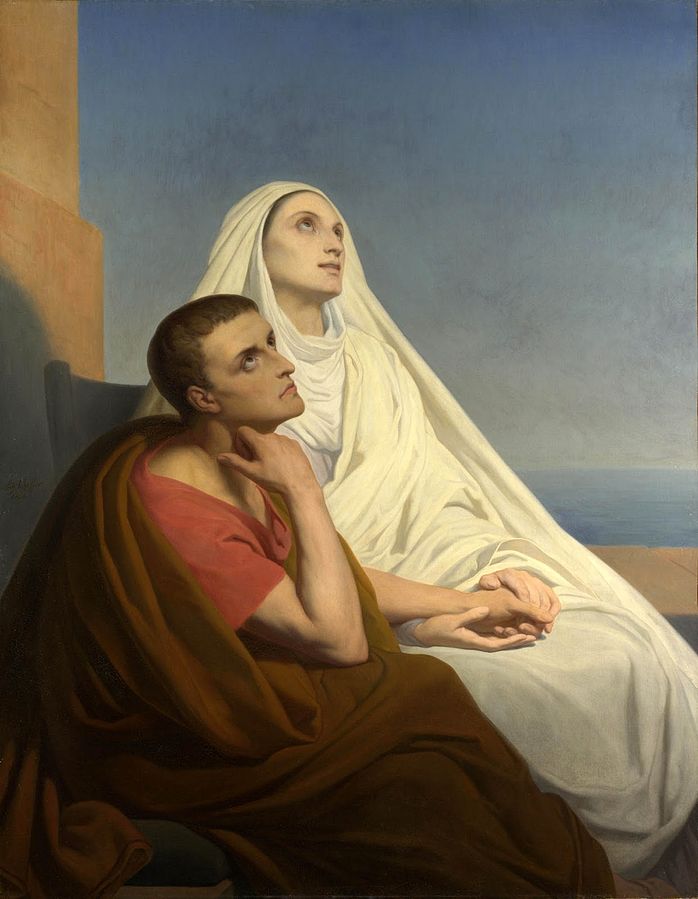Today and tomorrow’s commemorations go hand in hand: Monica, Faithful Mother (August 27th), and her son, Augustine of Hippo, Doctor of the Church (August 28th).
Born in North Africa in 354 A.D., St. Augustine is counted among the greatest of the Latin Church fathers, whose works are still taught and quoted among seminarians and theologians today. His books impacted the Church throughout the Middle Ages and the Renaissance, and he’s a particular favorite among Lutherans as he is famous for emphasizing salvation through grace alone.
He died in 430 A.D., famous as a prolific theological writer and a great defender of the orthodox faith, but he certainly didn’t begin so. A brilliant teacher of rhetoric early in his career, Augustine converted to Christianity later in his life, after moving to Italy. The story of his life before conversion is well documented in his book “Confessions,” where he admits to fathering an illegitimate son, his behavior a reflection of the moral laxity of the time.
God used two particular people in Augustine’s conversion: Ambrose (Bishop of Milan from 339-397), whose preaching deeply impacted the brilliant Augustine, and his mother. Widowed at a young age, Monica prayed for all of her children’s spiritual welfare, but especially for Augustine, undoubtedly in fear for his stubborn adherence to unbelief. She followed her son from North Africa to Italy, her faithful devotion rewarded when she finally witnessed his conversion to Christianity. She died on her journey back home to Africa, in Ostia, Italy.
Augustine served as Bishop of Hippo, North Africa, beginning in 395 A.D. until his death. He dealt with Pelagianism during his life (the heresy that denies original sin, arguing that man can choose good or evil without divine aid; essentially, that a man can will himself into living perfectly, denying both the depth of sin as well as the depth of God’s grace, as won for us on the cross through Jesus Christ). From a translation of “The Confessions of Saint Augustine”:
“Although I published [my “Confessions”] long before the Pelagian heresy had even begun to be, it is plain that in them I said to my God, again and again, ‘Give what thou commandest and command what thou wilt.’ When these words of mine were repeated in Pelagius’ presence at Rome by a certain brother of mine (an episcopal colleague), he could not bear them and contradicted him so excitedly that they nearly came to a quarrel. Now what, indeed, does God command, first and foremost, except that we believe in him? This faith, therefore, he himself gives; so that it is well said to him, “Give what thou commandest.” Moreover, in those same books, concerning my account of my conversion when God turned me to that faith which I was laying waste with a very wretched and wild verbal assault, do you not remember how the narration shows that I was given as a gift to the faithful and daily tears of my mother, who had been promised that I should not perish? I certainly declared there that God by his grace turns men’s wills to the true faith when they are not only averse to it, but actually adverse.”
You can read the full book (as translated by Albert C. Outler, PhD; Professor of Theology at the Perkins School of Theology, Southern Methodist University, Dallas Texas) at www.ling.upenn.edu/courses/hum100/augustinconf.pdf. I can’t speak for the translation (this is just what I found by googling “augustine ‘confessions’ pdf”), so if anyone knows of other preferred translations, feel free to chime in the comments.

